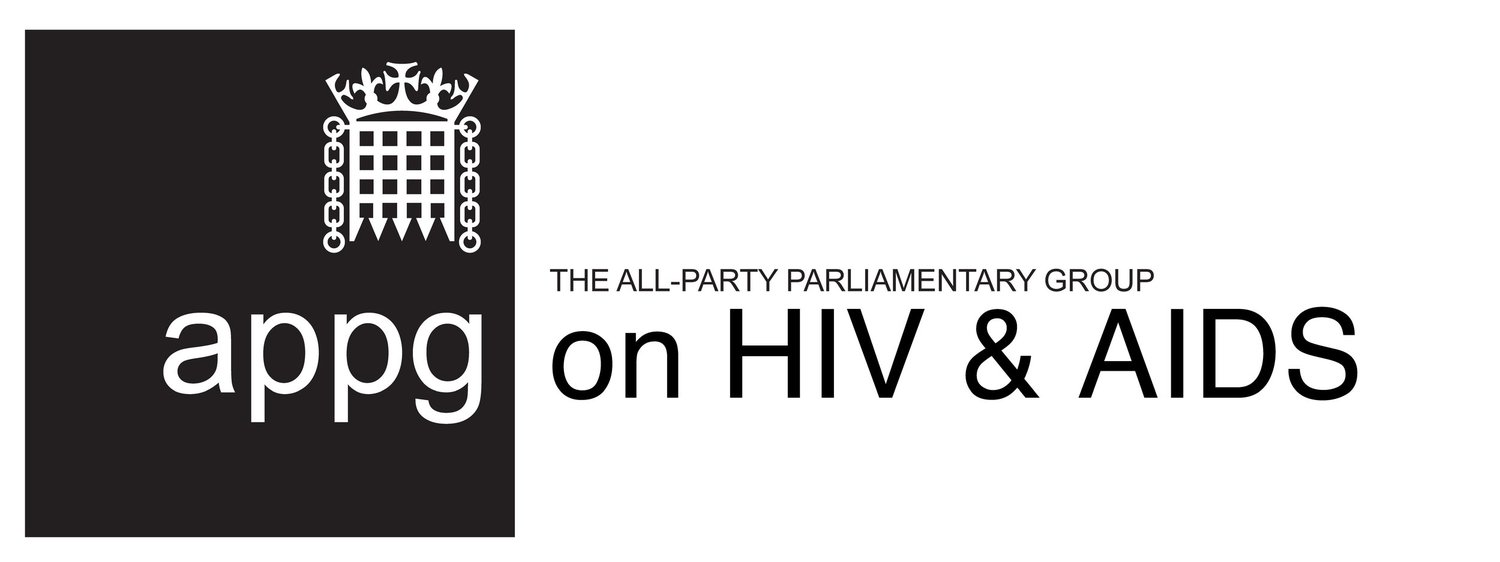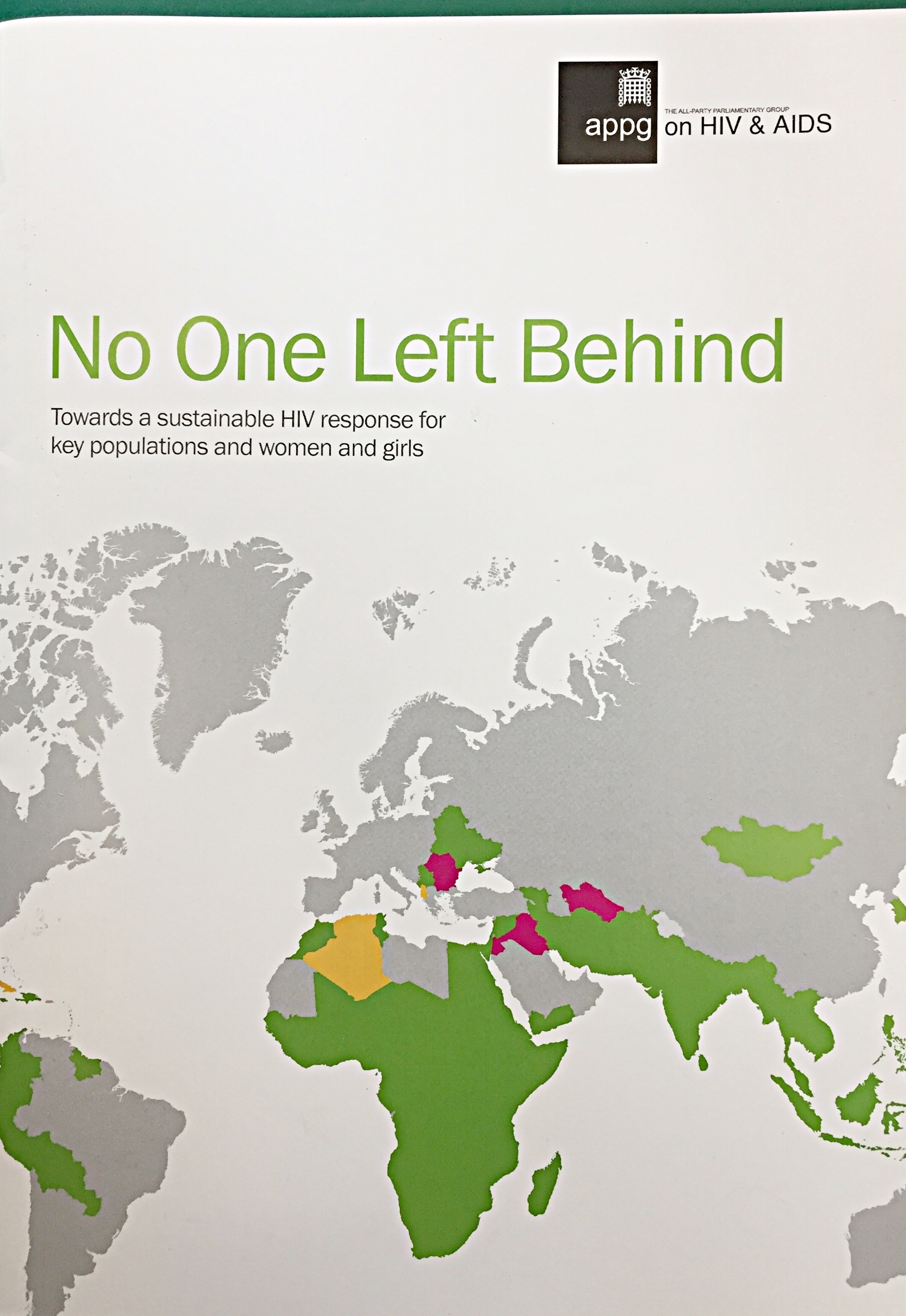Here's just a small sample of our inquiries over the years.
“HIV and Quality of Life. What do we mean? How do we achieve it?”
This report looks at what do we mean by Quality of Life for those living with HIV. More needs to be done to address the needs of those living with HIV as the population living grows older.
“Nothing about us without us” Addressing the Needs of Black, Asian and Minority Ethnic communities in Relation to HIV
The All Party Parliamentary Group HIV and AIDS launches its report “Nothing about us without us.” This report looks specifically at addressing the needs of Black, Asian and Minority Ethnic communities in relation to HIV in the UK.
Jeopardising progress: Impact of UK Government aid cuts on HIV & AIDS worldwide.
The drastic cuts in ODA spending from 0.7% to 0.5% have come at a critical time for the HIV response. We’re seeing significant cuts across all of the UK’s multilateral, bilateral, and research & development (R&D) funding at a crucial time for the HIV response when COVID-19 is threatening to reverse a decade of progress.
Increasing and normalising HIV testing across the UK - to access the report click here
Following the publication of the HIV Commission report and recommendations for ending HIV transmission in England, the All-Party Parliamentary Group on HIV and AIDS has carried out an inquiry into how to increase and to normalise HIV testing in the UK
covid-19 AND HIV - to access the report click here
‘COVID-19 and HIV’ looks at the impact of the coronavirus pandemic and actions taken by governments to tackle COVID-19 on people living with HIV and HIV treatment and prevention. The report recommends that the Government ensures global health funding is sufficient to ensure global access to treatment, and engages communities in the UK at higher risk from the impacts of COVID-19 and HIV.
THE MISSING LINK: HIV AND MENTAL HEALTH - TO ACCESS THE REPORT CLICK HERE
‘The Missing Link: HIV and Mental Health’ looks at mental health support for people with HIV and explores the bi-directional relationship between HIV and mental health. The report recommends that the Government adopts a National HIV strategy to tackle the complexity of mental health for people with HIV across different Government departments.
NO ONE LEFT BEHIND -To access the report click here
'No One Left Behind: Towards a sustainable HIV response for key populations and women and girls' tackles some of the biggest challenges to ending the HIV epidemic by 2030. The report makes important recommendations to donors such as the UK Government and the Global Fund to ensure that no one is left behind in the HIV response.
The hiv puzzle - to access the report click here
'The HIV Puzzle: Piecing together HIV care since the Health and Social Care Act 2012' looks at the impact of the Health and Social Care Act on HIV services, highlighting where there is fragmentation and making key recommendations for the UK Government.
Access denied - to access the report click here
In 2014 the APPG carried out an inquiry into access to HIV medicines in the developing world following on from our previous report Treatment Timebomb. The report looks at the various barriers to accessing ARV medicines and what the UK Government needs to do to address these barriers.
Halve It! Early testing saves lives: HIV is a public health priority
November 2011:
There are over 22,000 in the UK who are infected with HIV but don’t know it. This is 26% of all people living with HIV. Most will be diagnosed eventually but for many it will be when the virus has already caused their bodies serious damage and after the time they should have started HIV treatment.
Undiagnosed and late diagnosed HIV is bad for individual health, bad for public health and bad for the public purse.
This report explains why tackling it must be a Government priority and what steps we can take to make progress.
The All Party Parliamentary Group on HIV and AIDS is a member of the Halve It coalition and helped to write the report. The aim of the coalition is to halve the proportion of people being diagnosed late and the proportion of people who do not know their HIV status by 2015. The Halve It coalition includes clinicians, patients, business people, politicians, charities and academics.
The All Party Parliamentary Group on HIV and AIDS Health White paper response Liberating the NHS
November 2010:
This summer the Government published its proposals for NHS reform in a series of White Papers. These include proposals on commissioning, setting ‘outcomes’ and the splitting of the health service into an individual patient care service and a public health service. This document is the APPG’s response to these consultations.
Health is Wealth - The UK Government's role in achieving the Health MDGs :
August 2010
A Joint Position paper with other health APPGs.
The APPG on HIV and AIDS uses this joint position paper to call for increased focus on MDGs 4,5 and 6 when leaders meet at the September MDG review conference in New York.
In particular the paper calls on leaders to agree an "an ambitious plan to extend universal access to HIV prevention, treatment, care and support and to tackle new threats including the rise in HIV/TB co-infection."
It calls on the UK Government to provide its fair share to the replenishment of the Global Fund in October.
The APPG Inquiry into long-term access to HIV treatment in the developing world
The Treatment Timebomb describes how by 2030 over 50 million people will need HIV treatment compared to 9 million who need it today.
Millions of those needing treatment in future will need more expensive medicines, having become resistant to the basic HIV combination therapy. These ‘second-line’ treatments currently cost at least seven times more. When the basic treatment stops working, getting them is a matter of life or death.
Some people will also need to switch from the basic combination to newer less-toxic drugs because they experience serious side effects. The combination of more people needing more complex treatment is, says the report, a timebomb that needs to be addressed now, to avoid crisis later.
Governments around the world, including the UK, have signed up to the goal of ‘Universal Access to HIV treatment, prevention, care and support’ by 2010. The world is not on track to meet this target with only a third of the nine million people who need it having access to HIV treatment. This is despite the fact that for now, most people are on the cheap therapy.
The report argues that cutting the price of medicines is possible. Ten years ago the basic HIV treatment cost over $10,000 per person, per year. Today, thanks to generic production, these same medicines are available for just $87 per person enabling 3 million people to be treated across the world.
It says that to avoid a treatment crisis these kind of price reductions need to happen again with the newer HIV medicines.
It urges pharmaceutical companies to cooperate by allowing generic manufacturers to produce their HIV medicines cheaply, specifically for developing countries. It asks them to put their patents into a ‘patent pool’ for this purpose.
In welcoming the report, International Development Minister, Mike Foster, said:
“This important report reminds us that while it is absolutely vital that we work to reduce the human cost of HIV by focusing our efforts on preventing new infections, we must also face up to the stark reality of the treatment challenge we face. The pharmaceutical industry has an opportunity to act now to help prevent future human catastrophe. It is time for them to state their clear commitment to make new HIV medicines affordable to those who need them most, by working with UNITAID to develop a patent pool.”
The inquiry had three stages. Firstly, in February 2009 the APPG sent out a call for evidence to all of its contacts - it received written responses from pharmaceutical companies, NGOs and international foundations, such as the Clinton AIDS Initiative. Secondly, the APPG convened a high-level round table in parliament for senior charity HIV experts and pharmaceutical company officials, MPs and Peers. Finally, a cross-party group of MPs and Peers visited Geneva to talk to the WHO, UNAIDS, the Global Fund for AIDS, TB and malaria, and other relevant organisations.
In 2003, the Group held a Parliamentary Inquiry to look at the issue of Migration and HIV in the UK, focussing on how the Government could improve the lives of migrants with HIV. The report of the Inquiry, was published on 10 July 2003. A copy of the report, Migration and HIV Improving Lives, can be forwarded to you in PDF format and copies of the evidence transcripts in PDF format are also available from the Group.
Human Rights: 2001
In 2001, the Group held a Parliamentary Inquiry to look at the UK Government’s policies relating to the International Guidelines on HIV/AIDS and Human Rights, both within the UK and internationally. The Report of that Inquiry, published in July 2001, can be obtained from the Group in PDF format
















